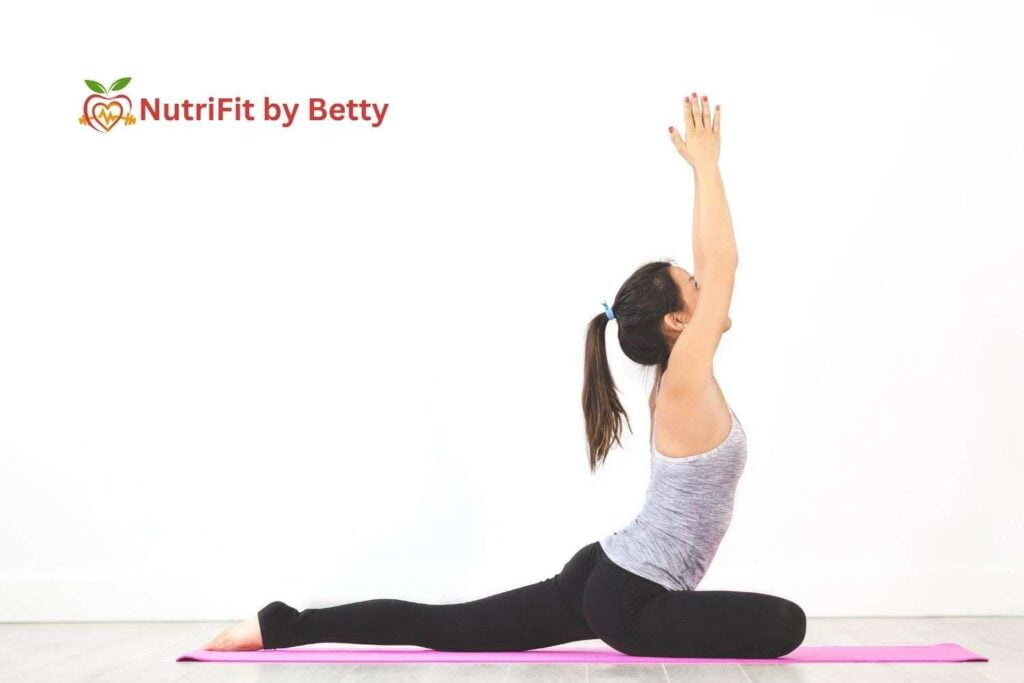Achieving good health demands more than healthy eating and regular exercise. To be truly healthy, you need to prioritize all the five pillars of health and wellness that form the foundation of a healthy lifestyle, which are nutrition, exercise, sleep, stress management, and detox.
All pillars are interdependent, and each cannot exist on its own. For example, sleep deprivation causes stress and can lead to overeating. On the other hand, a good night’s sleep reduces stress and can lower your risk of lifestyle diseases. Furthermore, eating highly processed foods may make you feel sluggish and reduce your energy levels. Also, exercise affects all the other pillars, like sleep, nutrition, stress management, and detox.
It may seem overwhelming to manage all five pillars, but simple lifestyle changes can improve your overall well-being. In this article, we look at the five pillars of health and wellness and how to optimize each to have a balanced and healthy life.
In This Article
What Are The 5 Pillars Of Health And Wellness?
The five pillars of health and wellness include nutrition, exercise, sleep, stress management, and detox. These pillars are interconnected, and ignoring one pillar may affect the others. Let’s look at each pillar and simple tips to incorporate them into our daily routine.
#1. Nutrition
You are what you eat. Nutrition plays a key role in your physical, mental, and emotional well-being. Healthy eating not only helps you maintain a healthy weight but also helps you sleep better and boost your mood. The reason is that your body and your brain have a close relationship through your gut.
The gut is home to billions of beneficial bacteria that influence the production of chemical substances that relay information from the gut to the brain.

Eating a balanced diet rich in fruits and vegetables with fiber feeds the beneficial bacteria in the gut, which stimulate the production of the chemical substances that relay positive messages to the brain to produce feel-good hormones like serotonin which boost your mood.
On the flip side, eating too much sugar feeds harmful bacteria and may lead to inflammation, chronic pain, and stress. According to research, eating highly processed foods can worsen the symptoms of anxiety and depression.
5 Simple tips to change your diet
- Replace simple sugars like rice or white bread with complex carbohydrates such as brown rice, oats, or wholemeal bread.
- Eat fiber-rich foods such as whole grains and beans, fruits, and vegetables every day.
- Eat fermented foods that are packed with probiotics (beneficial bacteria), such as yogurt, sauerkraut, and kimchi.
- Eat foods that are closest to their natural form and avoid processed foods with additives and added colors and sugars.
- Reduce your intake of “junk” foods like fries and add healthy fats such as avocado, nuts, and seeds.
Also Read: Facts About Fast Foods That Will Make You Rethink Your Health Choices
#2. Fitness

Many people believe they should only exercise to lose weight. That is not the case. Regular physical activity helps boost energy levels, reduce stress, help you sleep better, and improve your confidence. That’s why fitness is one of the most important pillars of health and wellness.
Have you ever noticed that you feel happier after sweating in the gym? The reason is that there is a mind-body connection. According to research, people who exercise at least three times a week have less anxiety and stress than those who don’t exercise at all.
Daily movement signals the brain to produce good-feel hormones such as endorphins which reduce stress levels and boost your mood. In addition, exercise also increases heart rate, which increases blood flow to the brain which helps to regulate stress and help you deal with stress better.
Exercise is one pillar that affects all the others. Simply move to get better sleep, boost your mental health, detox your body through sweating, and get motivated to eat healthy foods.
4 Simple Tips to Exercise More
- Use every opportunity to move your body, such as taking the stairs instead of the lifts, parking furthest from the office, and moving during your lunch break.
- Choose the activities that you enjoy to keep you motivated, such as swimming, aerobics, or yoga.
- Aim for 30 minutes of moderate-intensity workouts every day (150 minutes every week) or 25 minutes of high-intensity workouts thrice a week (75 minutes per week) and 2 days of strength exercises for each option.
- Start with 15 minutes of daily exercise if you are short on time, and increase the time gradually.
RELATED: How To Make Time For Exercise With A Busy Schedule (9 Easy Tips)
#3. Sleep

Sleep is one of the most important pillars of health and wellness. A good night’s sleep rests your body, allows the brain to rejuvenate, and increases focus and productivity. Getting adequate sleep also lowers your stress levels and regulates key hormones that affect your appetite, which is important when you want to maintain a healthy weight.
Lack of sleep affects all the tissues in your body, your immunity, blood pressure, appetite, and heart health. Furthermore, science links it with a weakened immune system and a higher risk of obesity, type 2 diabetes, memory loss, and heart disease.
In addition, sleep deprivation may make you irritable, impair your ability to regulate your emotions, and affect your focus and concentration. Research shows that drowsy driving is more dangerous than drunk driving and is responsible for 26.5% of total accidents.
5 Tips to Sleep Better
- Aim for 7-9 hours of sleep every day.
- Have a consistent sleep routine, and wake up at the same time every day to reset your circadian rhythm (the body’s natural alarm clock).
- Put away electronic devices at least one hour before bed, as the blue light can affect your ability to sleep faster.
- Avoid taking caffeine past noon because it can make you struggle to fall asleep.
- Have a calming bed routine like taking a warm bath, turning off bright lights, and reading an inspiring book.
Also Read: Why is My Metabolism So Slow? 9 Causes of Slow Metabolism
#4. Stress Management

Did you know that constant stress increases your risk of death more than cancer and cardiovascular disease? Being stressed increases your cortisol hormone levels and puts you into flight or fight mode. Your blood pressure increases, and you may be at risk of comfort eating because the body is trying to get quick energy to tackle the situation.
Constant exposure to stress keeps the cortisol levels elevated and can lead to inflammation, which increases your risk of diseases such as cancer, type 2 diabetes, and heart disease. On the other hand, the ability to cope with stressful situations and manage your emotions allows you to make better food choices and have the energy to work and exercise. It also helps you be calm even when facing challenging situations and makes it easy to get high-quality sleep.
6 Tips to Reduce Your Stress Levels
- Adopt relaxation techniques that reduce stress, such as meditation, yoga, or deep breathing. For example, meditate for 10-20 minutes every day.
- Exercise on most days to boost your mood and confidence and regulate your emotions.
- Have a daily routine with clear tasks that you need to do to avoid feeling overwhelmed. Ensure that you take short breaks within your working schedule.
- Avoid using food to numb your feelings. Instead, go for a walk, journal, or speak to a trusted friend to vent.
- Adopt mindful eating by eating slowly without distractions to reduce unhealthy cravings and overeating.
- Try to maintain a harmonious relationship with people around you and limit interaction with environments that stress you out.
Also Read: How Does Exercise Improve Mental Health? (9 Surprising Ways)
#5. Detox

Did you know that you can reverse your risk of chronic disease by eliminating toxins from the body? If you’re experiencing constipation, chronic pain, inflammation, bloating, and chronic diseases, you may need to pay more attention to the detoxification pillar.
The body has a natural mechanism for removing toxins. The liver breaks down toxins, and the kidneys help cleanse the blood and eliminate them. The skin and lungs, too, can help the body remove toxins by breathing out carbon dioxide and sweating. But sometimes, the body can be overburdened if we allow too many toxins into it.
Therefore, you need to support the natural detox process by taking care of all the other pillars of health and wellness, like eating healthy foods, exercising, getting adequate sleep, and drinking enough water. Luckily, you don’t need expensive supplements and cleanses to do that.
The fastest way to flush toxins from your body is to adopt a holistic approach and incorporate all the other pillars of health and wellness to support the natural detox process. For example, regular exercise prevents constipation and keeps the bowel moving and also helps eliminate toxins in the body like arsenic, lead, and mercury through sweat.
According to research sweating through exercise like running reduces more toxins than sweating in a seated state in a sauna.
10 Simple Tips to Detoxify Your System Naturally
- Drink enough water daily to help the kidneys flush out toxins from the body. You can also drink green tea or add lemon to your water.
- Limit your exposure to harmful toxins from smoking, drinking alcohol, or chemical substances in our environment, such as mercury and lead.
- Eat foods rich in antioxidants, such as fruits and vegetables like oranges, berries, and carrots, which protect the cells from radical damage.
- Eat fiber-rich foods (prebiotics), such as tomatoes, bananas, beans, whole grains, garlic, and onions, that feed the beneficial bacteria, improve gut health, and fasten waste removal.
- Eat whole, organic foods with less exposure to pesticides and other harmful chemicals.
- Reduce your intake of highly processed and sugary foods, which increase inflammation, cause cell damage, and increase your risk of heart disease, cancer, type 2 diabetes, and obesity.
- Stay active and exercise most days to help the body expel harmful toxins such as lead, copper, mercury, and arsenic through sweat.
- Get adequate sleep every night to reduce stress and inflammation affecting the body’s ability to detox.
- Limit alcohol intake to three cups for women and four for men per week. Alcohol overburdens the liver to metabolize it, thus reducing its ability to perform the natural cleaning process.
- Be careful with products you use, such as cosmetics, cleaners, air fresheners, lotions, and body sprays. The products you put in your body could enter the bloodstream through the skin and increase the toxin load. Use natural products and exfoliate your skin often.
Also Read: 12 Healthy Foods You Should Always Have in Your Kitchen
FAQs
- What are the top pillars of health?
The top pillars of health work together for a healthy body and mind and include good nutrition, adequate sleep, regular exercise, sleep, and detox
- What is the difference between health and wellness?
Health is a state of physical, mental, emotional, and social well-being, while wellness is becoming aware and making choices to improve the state of the body, mind, and soul.
- What are the four pillars of fitness?
The four pillars of fitness are flexibility, cardio, strength, and endurance. To be fit, you need to incorporate all four into your exercise routine.
- What are the five pillars of well-being?
The five pillars of well-being include physical, mental, social, emotional, and financial well-being. You need to improve all the five pillars to improve your quality of life.
Final Thoughts
The five pillars of health and wellness are like wheels in a car. When you move one, the others follow. Caring for each pillar boosts the rest and improves overall health. However, don’t feel pressured to make too many changes at the same time to avoid getting overwhelmed.
Start with one small change at a time and implement another the following week. For example, you could start by replacing processed foods with whole grains in week one. The next week, improve your sleeping patterns and then add a consistent workout routine.
Lasting transformation does not happen overnight. It may take days or weeks to feel the changes in your body and mind. However, the small changes you make in your daily routine are beneficial for your future self, so take the step today and take care of your health and wellness.
Are you ready for a healthier you? Contact me for personalized coaching to help you take care of the five pillars of health and wellness.
Read Next:




